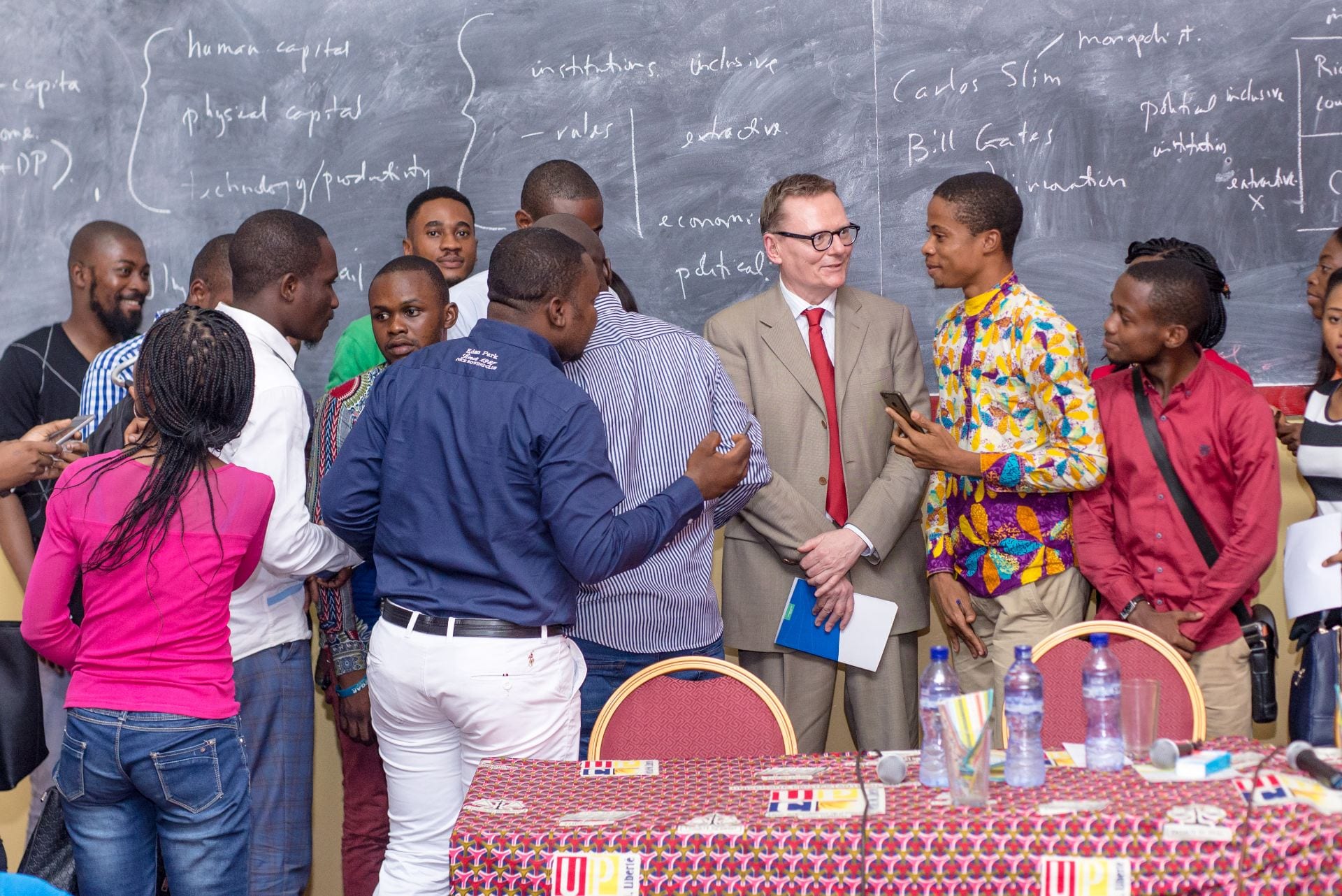James A. Robinson
University Professor; Harris School of Public Policy and Department of Political Science, University of Chicago; Recipient of the 2024 Sveriges Riksbank Prize in Economic Sciences in Memory of Alfred Nobel
Publications
Tax Aversion and the Social Contract in Africa
Citation Robinson, James A. “Tax Aversion and the Social Contract in Africa." Journal of African Economies. 32, Issue Supplement_1, (2023): i33–i56. Download (PDF) Tax Aversion and the Social Contract in Africa Abstract Despite the low levels of taxation and public...
The Second World War, Inequality, and the Social Contract in Britain
Citation Heldring, Leander, James A. Robinson, and Parker Whitfill, “The Second World War, Inequality, and the Social Contract in Britain,” Economica, 89, no.1 (2022): 137-159 Download (PDF) The Second World War, Inequality and the Social Contract in Britain Abstract...
Non-Modernization: Power-Culture Trajectories and the Dynamics of Political Institutions
Citation Acemoglu, Daron and James Robinson, “Non-Modernization: Power-Culture Trajectories and the Dynamics of Political Institutions,” Annual Review of Political Science, 25 (2022), 323–39. Download (PDF) Non-Modernization: Power-Culture Trajectories and the...
The Political Economy of Latin America: New Visions
Citation “The Political Economy of Latin America: New Visions,” with José Luis Falconi (2021). Working Paper. Download (PDF) The Political Economy of Latin America: New Visions Abstract Latin American under-development has been fundamentally determined by a political...
Culture, Institutions and Social Equilibria: A Framework
Citation “Culture, Institutions and Social Equilibria: A Framework,” with Daron Acemoglu (2024). Working Paper Download (PDF) Culture, Institutions, and Social Equilibria: A Framework Abstract This paper proposes a new framework for studying the interplay between...
Africa’s Latent Assets
Citation “Africa's Latent Assets,” with Soeren Henn (2021). Working Paper. Download (PDF) Africa's Latent Assets Abstract Despite the past centuries’ economic setbacks and challenges, are there reasons for optimism about Africa’s economic prospects? We provide a...
Genetic legacy of state centralization in the Kuba Kingdom of the Democratic Republic of the Congo
Citation van Dorp, Lucy, Sara Lowes, Jonathan L. Weigel, Naser Ansari-Pour, Saioa López, Javier Mendoza-Revilla, James A. Robinson, Joseph Henrich, Mark G. Thomas, Nathan Nunn, and Garrett Hellenthal. 2019. “Genetic legacy of state centralization in the Kuba Kingdom...
The Narrow Corridor: States, Societies, and the Fate of Liberty
Citation 2019. The Narrow Corridor: States, Societies, and the Fate of Liberty. by Daron Acemoglu and James A. Robinson. New York: Penguin. Abstract In Why Nations Fail, Daron Acemoglu and James A. Robinson argued that countries rise and fall...
Trust in State and Non-State Actors: Evidence from Dispute Resolution in Pakistan
Citation “Trust in State and Non-State Actors: Evidence from Dispute Resolution in Pakistan,” with Daron Acemoglu, MIT, Ali Cheema, LUMS, and Asim Khwaja (Harvard), NBDER Working Paper #24611, forthcoming in the Journal of Political Economy. Download (PDF) Trust in...
How Different Social Scientists Think
Download (PDF) How Different Social Scientists Think Abstract I illustrate how, based on my personal experience, different social scientists would study the same question. I argue that each brings different paradigms, perspectives, preconceptions and methodologies,...